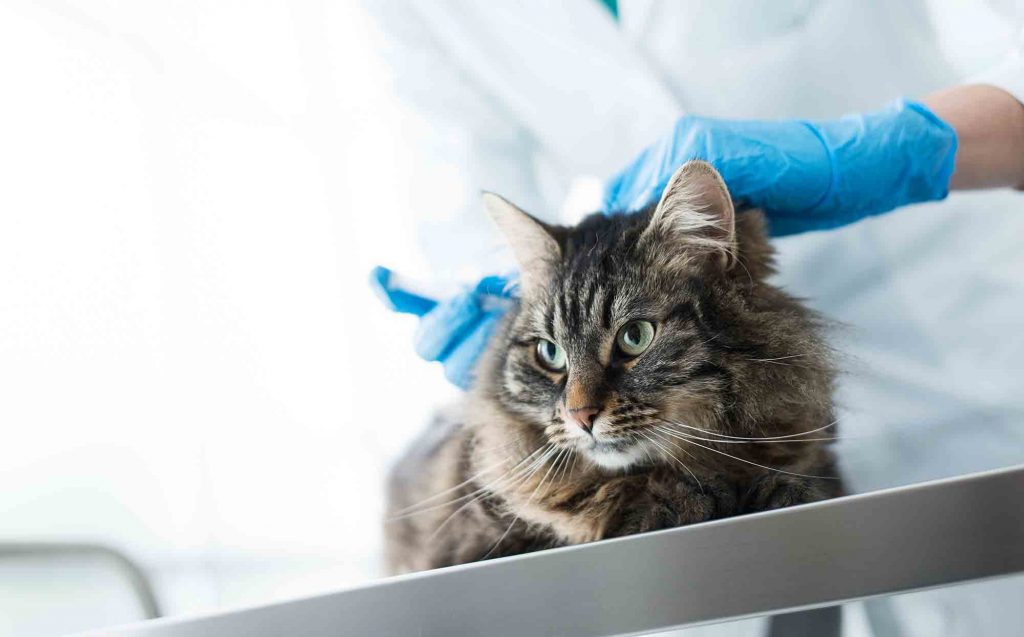A Closer Look at Cat Vaccinations

To be a cat owner, you have to be a cat lover. And to truly love cats, you have to support their overall health and day-to-day wellness. This means providing them with “creature comforts” and ensuring they remain safe from infectious diseases. While cat vaccinations are tailored to the unique needs of each pet, they’re a critical line of defense for cats in general.
Investing in the Future
Cat vaccinations are part of a wellness platform that aims to prevent contagious diseases from spreading. As soon as you adopt, we recommend bringing your cat in to develop a disease prevention plan. It will take into consideration your cat’s age, lifestyle, medical history, pre-existing health conditions, and their risk of exposure to infected animals and parasites.
What’s at the Core?
Core cat vaccinations are vaccines that all cats should receive. This includes:
- RCCP is a combination vaccine that protects against herpes virus, calicivirus, chlamydia and panleukopenia virus. It’s typically administered in four week intervals at 8, 12 and 16 weeks of age. A follow-up should be given one year from the last dose, this vaccine should be repeated annually.
- Rabies is a zoonotic disease (one that can be passed from animals to people) that must be prevented in cats because treatment is impossible. The vaccine should be administered between 3-4 months old; it provides one year of protection and should be repeated annually.
Non-core cat vaccinations are recommended if we deem your cat at risk for infection. This includes:
- FeLV is a vaccine that guards against feline leukemia virus. Transmitted through saliva, this disease suppresses the immune system and creates a predisposition for certain types of cancer. We recommend FeLV vaccinations at 12 and 16 weeks for all kittens the first year, and then annually for “at risk” cats (outdoor or multi-cat households).
For more information about cat vaccinations, check out these guidelines from the American Association of Feline Practitioners.
Cat Vaccinations Save Lives
Healthy cats who don’t venture outdoors definitely experience less risk when it comes to contagious diseases. However, leaving an indoor-only cat unprotected can be a risky choice. For example, rabies can be transmitted by animals who get inside your home, like bats or raccoons. Likewise, many contagious cat diseases can be carried in on human clothing or shoes, leaving unvaccinated cats at risk.
The bottom line is that cat vaccinations are an important line of defense against contagious diseases. When properly followed and administered, cat vaccinations can preserve health and save lives.
As always, please let us know if you have any questions or concerns.
